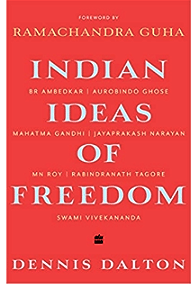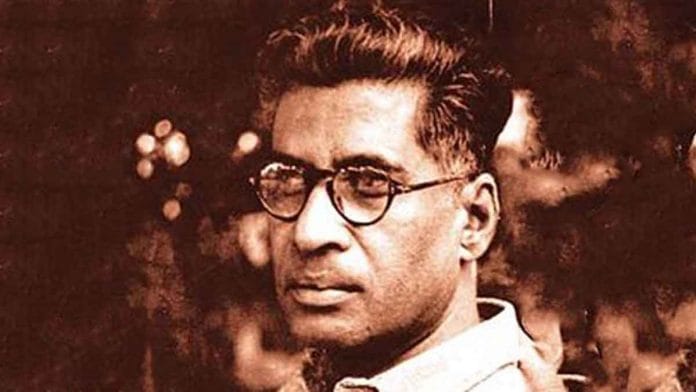When Michael Borodin baptized Roy into Marxism in 1919, Roy came from Indian nationalism to the new faith with the zeal commonly found amongst fresh converts. ‘Marxism is a wonderful philosophy, is it not?’ he exclaimed to a fellow comrade in 1923. ‘It has made of history such an exact science. Roy’s first major work, India in Transition (1922), attempted to apply this ‘exact science’ in orthodox Marxist fashion to an analysis of British imperialism and Indian nationalism. For Roy, it was evident that ‘It is only the philosophy of Historic Materialism and the programme of Marxism, Socialism, that can show the way out’. When an Indian comrade expressed mild qualms over ‘Bolshevism’, Roy snapped back, ‘Let me be brutally frank and tell you openly that the salvation of India lies through Bolshevism.’ Nowhere in Roy’s early Marxist polemics does one find a hint of his later heresies. The Communist doctrines which he eventually repudiates are here vigorously employed in his analysis of Indian politics. In a tract of 1926, for example, Roy applies the Marxist theories of class struggle, dialectical materialism, economic determinism, and the proletarian revolution to establish the inevitability of a Communist conquest of India. The need of the masses is for revolutionary leadership and ‘The Communist Party of India is called upon by history to play this role’. This theoretical orthodoxy was matched in practice by a position of high status in the Communist International (Comintern), where Roy attained the height of his influence in 1926. Whether his subsequent decline and expulsion from the Comintern are attributed to Roy’s own tactical blunders or Stalin’s need for a scapegoat, it was certainly not as a result of any theoretical departure from Marxism. At least until 1931 when he entered his ‘quiet country-town jail’ in Cawnpore, Roy remained an orthodox Marxist.
Also Read: MN Roy, the Indian revolutionary who founded Mexican Communist Party
Roy was imprisoned for almost six consecutive years. Those who were closest to Roy have said that no experience had a more profound effect upon his thought than this. Pandit Nehru wrote of his own imprisonment that ‘A person who was at all sensitive was in a continuous state of tension’. Roy had plenty of sensitivity, but few of the special privileges accorded to prominent figures like Nehru. His Letters from Jail suggest the acute mental tension and the intolerable physical strain he suffered. An interesting sidelight on this experience and its impact on Roy’s personality might perhaps be gleaned from Philip Spratt’s ‘notes on jail psychology’. Spratt, a British Communist in India, had a prison experience similar to Roy’s. After his release, Spratt became one of Roy’s close associates in the Radical Democratic Party (RDP). Spratt writes in these articles on jail psychology that a prolonged prison experience produces the effect of a ‘psychological hothouse’ where there is an overwhelming ‘concentration of emotion upon the self’. This encourages latent elements of thought and feeling to rise and flourish through the stimulus of intense introspection. The element that flourishes best is man’s ‘urge towards religion’. Spratt regards jail as ‘a forcing house for religion’; he relates that in his own case, ‘I had myself no religious belief, and had been very critical of religion, but I felt the force of its appeal’.
Roy did not experience in prison a mystical revelation like that claimed by his erstwhile Bengali leader, Aurobindo Ghose. Indeed, the scorn that Roy pours on such ‘revelations’ in his essay ‘Psychology of the Seer’ (written in prison) would seem to make nonsense of any ‘religious conversion’ at this time. Yet, it remains true that a marked change in Roy’s thought and personality did occur, and it may not be entirely wrong to see this change as a response to the sort of religious appeal that Spratt describes. One thing at least is certain: Roy’s movement away from orthodox Marxism towards the foundations of Radical Humanism began in prison. The first clear sign of this shift appeared shortly after his release in the article, ‘Marxism is Not a Dogma’. First, this writing stresses the limitations of Marxism. New discoveries in science combined with those ‘practical problems’ and historical
developments unforeseen by Marx establish the need to ‘revise certain fundamental conceptions of classical Materialism’. ‘The modern Marxist,’ Roy says, ‘cannot follow literally the line predicted by Marx … we cannot say that developments here in India must necessarily follow the same line as Marx predicted for European developments.’
Also Read: Brahmin ignorance, liberal guilt, Karl Marx – Manjeet Sarkar spares none in ‘Untouchable’
At this point, however, he insists that he remains nevertheless a Marxist and asserts the enduring positive value of Marxism. He does this in a manner reminiscent of Bengali reformers like Vivekananda, who sought to reconstitute Hinduism by distinguishing between its ‘spirit’ and ‘form’. Marxism, Roy argues, is not a dogma; it is a ‘philosophy of life’. As such, it is ‘greater than Communism’, which is merely a particular ‘phase of human development’. Roy’s aim now is to reinterpret Marxism as a liberal, humanist philosophy. He discovers ‘the essence of Marxism’ in the idea that Man is God, and therefore ‘the master of history’. The old emphasis upon economic determinism and historical inevitability has disappeared; in their place is the view that ‘the foundation of Marxism is Rationalism’ and the Marxist philosophy must be appreciated together with its great heritage, the European
Renaissance.
The message of Marxism for India is that the country needs a ‘Renaissance movement’, a ‘philosophical revolution’. This is the theme that is to develop during the next decade, eventually providing one of the bases for Radical Humanism. In 1947, Roy reflected back
upon this critical juncture in his thought and wrote: ‘I still spoke as an orthodox Marxist criticising deviations from or faulty understanding of the pure creed. Nevertheless, the tendency to look beyond Communism was already there in a germinal form.’ The nature and significance of this metamorphosis from Marxism to Radical Humanism will now be
analysed in the context of two major aspects of Roy’s political thought, his conception of freedom as related to the ideas of power, leadership and revolution.
Also Read: Revisioning India’s future? Start with Marxism, without the baggage
Roy’s Conception of Freedom
The analysis of Roy’s idea of freedom is intended not only to illustrate the evolution of his thought, but also to argue the close parallels which this concept ultimately developed with the ideas of others in this group of seven. The implication of this argument is not that these conceptual parallels necessarily emerged as a direct result of the influences among thinkers, e.g. of Gandhi on Roy. The point is rather that the evolution of Roy’s thought may be seen in terms of his continuing response to the Indian intellectual tradition. Moreover, the broad inference that may be drawn is that the presuppositions of this tradition can be explained in the context of the similar way that Roy and the others formulated their parallel theories.
With Indian Marxists as well as other thinkers examined here, Roy always asserted that freedom meant more than political independence. India might gain her independence from Britain, they all asserted, but freedom for the Indian people would not necessarily follow. However, there were two ways of interpreting this proposition. The Marxists contended that political independence did not equal freedom since the latter involved economic rights and opportunities for the masses far beyond what mere political liberation from England implied.
Others in this group claimed to recognize the importance of economic reform, but they emphasized the ‘moral’ aspect of freedom. Gandhi thus preferred to use the term swaraj, which for him had two meanings: not only political independence but also (as he wrote as early as 1909) ‘self-rule or self-control’. This view of freedom in fact dominated the Indian intellectual tradition, and it was explicitly pronounced before Gandhi’s treatise among Bengali thinkers. Aurobindo often distinguished between ‘internal’ (moral) and ‘external’ (political and economic) freedom.
 This excerpt from Indian Ideas of Freedom’ by Dennis Dalton has been published with permission from Harper Collins India.
This excerpt from Indian Ideas of Freedom’ by Dennis Dalton has been published with permission from Harper Collins India.






